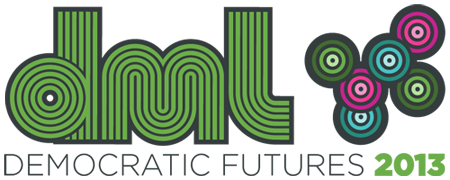DML: Designing with Teachers: Participatory Approaches to Professional Development in Education
Participatory learning, as a pedagogical model, underscores the urgency of facilitating educational experiences that help build the skills and knowledge necessary to contribute in today’s evolving socio-cultural environments, digital and non-digital alike. Unequal access to these skills and experiences can prevent young people from meaningful social and cultural participation, and put them at a disadvantage in terms of their personal and professional pathways (Jenkins et al., 2006). The participation gap, which Jenkins and colleagues (2006) identify as one of the three core challenges to participatory culture, goes beyond questions of technological access; it fundamentally concerns the cultural competencies and social skills needed for full and meaningful engagement in these new cultural spaces. This participation gap, nevertheless, cannot be fully and adequately addressed if teachers are not afforded these same opportunities to grow and learn. It is therefore crucial to acknowledge that the participation gap affects both students and educators, and that professional development for teachers is as essential and as necessary as the participatory learning initiatives directed at students.
The idea of establishing a working group on participatory models of professional development for teachers grew out of discussions that occurred during the Digital Media and Learning Conference 2011. The aim of this working group was to bring together those who are designing, developing and implementing initiatives to support teachers in understanding the affordances of digital media in learning, and to engage in a much-needed dialogue on culturally relevant professional development. We believe that, in order to generate effective models of participatory professional development, an engaged collaboration is needed between multiple stakeholders who bring a diverse set of ideas and challenges to the conversation. Our group is, thus, a mixture of researchers, teachers and school administrators from a variety of disciplines, schools, and states. Instead of working in silos on the same issue, coming together as a collaborative has led to a productive and important discussion of how to scale and sustain successful models of 21st century professional development in education.
This panel will bring together core members of this working group, to discuss their experiences in designing and implementing participatory models of professional development in diverse educational settings. The panelists will address the values identified by this working group as key elements of participatory PD: participation, not indoctrination; exploration, not prescription; contextualization, not abstraction; iteration, not repetition. These values – and the design principles that they inspire – offer a blueprint for an innovative type of professional development. By incorporating these values into the design of professional development programs, researchers and practitioners can efficiently craft initiatives that are participatory, non-hierarchical, personally and professionally meaningful, relevant, flexible and sustainable.
Due to the limitations of panel membership, only a few case study authors can be physically present on this panel. However, this work is fundamentaly collaborative, and we would like to acknowledge the co-authorship of the following contributors for this panel: Rebecca C. Itow, Sarah Morrisseau, Isabel Morales, Vanessa Vartabedian, Henry Jenkins, Rebecca Herr-Stephenson.



